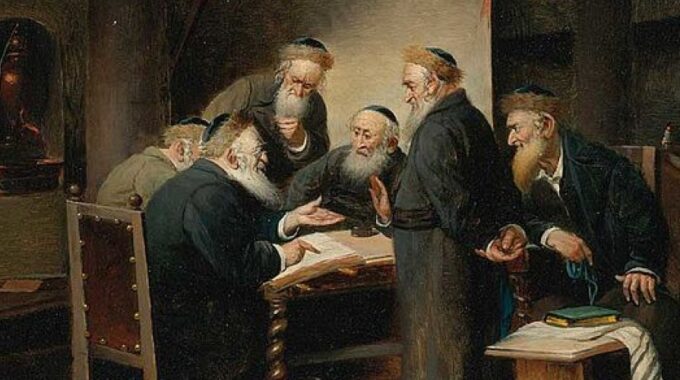Adapted from the writings of Dayan Yitzhak Grossman April 18, 2024 AP News reports: A…

Bais HaVaad on the Parsha, Parshas Korach
Begging to Differ
Excerpted and adapted from a shiur by Dayan Yitzhak Grossman
June 22, 2023
Korach gathered the entire assembly against them at the entrance of the Ohel Mo’ed, and the glory of Hashem appeared to the entire assembly.
Bemidbar 16:19
Korach’s rebellion against Moshe raises the question of when one chacham is permitted to disagree with earlier chachamim in matters of halacha, concerning which we will cite here just a few out of many sources. The Ra’avad argues that if a dayan rules against a Gaon (from the tekufas haGeonim), he is deemed a to’eh bidvar Mishnah (errant in an explicit matter), concerning which the halacha says he must retract his ruling. In the Ra’avad’s understanding, one may never disagree with Geonim unless he has a very “famous question” against them, which he says is uncommon.
The Rosh holds that if the dayan is familiar with the Gaon’s view and cites proofs against it that are accepted by the other gedolim in his generation, he is permitted to disagree. In support of his position, the Rosh cites the Gemara that one can only go to the authority in his generation (even if he is of lesser stature than earlier authorities that ruled differently). If the later chacham has no proofs and his view is not accepted by other chachamim in his time, he may not disagree with an earlier chacham.
The Rama rules like the Rosh, and some later poskim also permit contradicting earlier authorities in some cases. For instance, the Rid says that the later generations are compared to dwarfs on the shoulders of giants, who can use the knowledge of the giants to arrive at their own ruling, even if they are of lesser stature.
In recent times, R’ Moshe Feinstein wrote to R’ Menashe Klein (who sought to rule against R’ Moshe, the gadol hador) that it was permitted to disagree with him, and even a lesser chacham has the right to express his view. The issue is complex,[1] but in practice, most recent poskim will not disagree with a large group of significantly earlier Rishonim or Acharonim, but they may disagree with individual poskim from the century before them.
[1] Other issues to take into account include the fact that some Rishonim cite the Gemara mentioned above as proof for the opposite approach (that one may not disagree with earlier authorities), the assumption that Rishonim do not generally disagree with Amora’im, and the idea that repealing the gzeirah of an earlier bais din may be different from disagreeing on the halacha.





